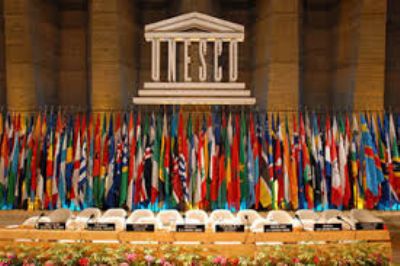Share
What's New
Resources updated Thursday, July 13, 2017
July 13, 2017
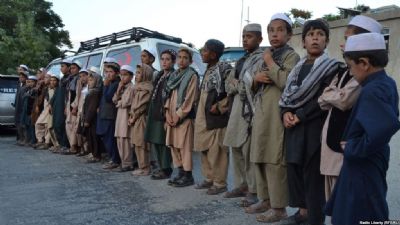
Afghan police have arrested members of a human trafficking ring they say kidnapped 25 children and tried to smuggle them into Pakistan, where they were to be trained as suicide bombers for the Afghan Taliban.
At least one of the children who was to be trained as a suicide bomber was 4, a regional governor said, and they may have been drugged as well.
Police arrested four alleged traffickers transporting the children in two vans during a security operation in the southeastern province of Ghazni, near the border with Pakistan, on July 9.
Their final destination was the southwestern Pakistani city of Quetta, where the leadership of the Afghan Taliban is believed to be based, officials said.
The incident came as human rights organizations have warned that the Taliban have been recruiting, training, and deploying children for military operations including suicide bombing missions and the planting of improvised explosive devices.
Ghazni Governor Abdul Karim Mateen said the children were aged between 4 and 14. He said they were currently housed in an orphanage in the provincial capital, and they appeared to have been given drugs or some other substances by their abductors.
"The children have received medical checkups and treatment," Mateen told RFE/RL "They were given substances [by the traffickers] that has made them dizzy and confused. They have lost their senses."
Mateen said he believed the children were all Ghazni residents, although he said police were still trying to locate their families and relatives.
Mateen said the four people were in police custody and will be prosecuted. He gave no further information.
Fahim Amerkhail, the spokesman for Ghazni's police chief, said the children were being taken to Quetta to perform "terrorist activities."
The children had been drugged and were found in a "bad physical and psychological state," Amerkhail said. He said many of them were orphans.
The security operation that rescued the children on July 9 occurred in the Qarabagh and Ab Band districts of Ghazni, which is largely controlled by the Taliban.
The Taliban have been accused of recruiting and using children as fighters since the 1990s.
In a February 2016 report, Human Rights Watch said the Taliban were expanding their recruitment of children, particularly in the country's north where the militants have succeeded in expanding their power.
The rights group said in the northern Kunduz Province, the Taliban were using religious schools known as madrasahs to recruit children, often against their parents' wishes. In the Kunduz cases that the group investigated, the children were lured into the schools and then unable to leave.
Patricia Gossman, a senior researcher on Afghanistan at Human Rights Watch, said the organization has not come across any cases of kidnapping children with the aim of making them suicide bombers. But she slammed the Taliban for targeting children in general.
"The Taliban's strategy to recruit children as fighters is as cruel as it is unlawful," she said. "Afghan children should never be used as cannon fodder by any armed force."
Afghan Police: Children Kidnapped To Be Suicide Bombers For Taliban Document
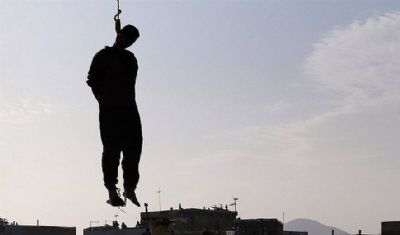
Following a pause in executions during the Muslim holy month of Ramadan, executions in Iran have dramatically increased since Saturday July 1.
In the past twelve days, Iran Human Rights has reported on 56 executions carried out in Iran. 31 of the 56 prisoners were reportedly hanged on drug related charges. Only seven of the 56 executions were reported by official Iranian sources, including the Judiciary and state-run media.
Iran Human Rights considers the volume of executions in Iran inhumane and calls for their immediate halt. "In the past twelve days in Iran, we have witnessed more than one execution every four hours. This is unprecedented, even for the Islamic Republic of Iran. It is crucial that the international community reacts to this," says Mahmood Amiry-Moghaddam, the spokesperson for Iran Human Rights.
"It is incomprehensible that the death sentences for prisoners with drug related charges are being hastily carried out at the same time that a bill is being reviewed by the Iranian Parliament to stop the death sentences for many prisoners with drug charges. It is possible that the Iranian authorities intend to carry out the death sentences for as many prisoners with drug related charges as possible before passing the bill. If this is the case, then we will be witness to a massacre."
Mahmood Amiry-Moghaddam calls on the international community and civil societies inside and outside Iran to help prevent a massive human tragedy before it is too late by reacting to the wave of executions in Iran.
Previously, Iranian parliament members had requested from the Iranian Judiciary to stop drug related executions for at least five thousand prisoners pending further investigation. However, the request has not stopped the Judiciary from carrying out death sentences for prisoners with drug related charges.
Iran: More than One Execution Every Four Hours in July Document
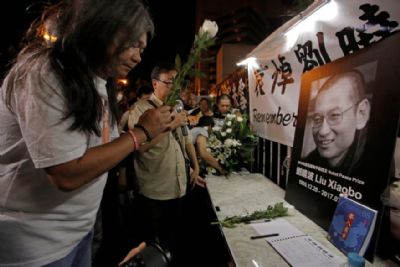
Imprisoned for the last eight years of his life, his name erased from Chinese news reports and public records, Liu Xiaobo was a deliberately silenced man. But the Nobel Peace Prize laureate's death from liver cancer Thursday only intensified the public outcry over the causes he devoted his life to, as scholars, activists and governments around the world condemned Beijing for its treatment of the 61-year-old dissident.
U.S. lawmakers, human rights groups and democracy activists in China itself all weighed in on Mr. Liu's death, China's most famous political prisoner who succumbed quickly to his disease just weeks after his release from prison. The death also comes as the government of President Xi Jinping has made a conscious effort to boost China's "soft power" with such initiatives as the One Belt, One Road program and the new Asian Infrastructure Investment Bank.
Sen. Marco Rubio was one of a number of lawmakers on Capitol Hill sharply critical of Beijing's treatment of Mr. Liu.
"There should be an independent investigation into the circumstances surrounding Dr. Liu's death, his treatment in detention, the timing of the diagnosis of his late-stage liver cancer, and countless other questions that need to be answered," the Florida Republican said in a statement. "The Chinese authorities complicit in his unjust imprisonment and death should be immediately sanctioned and their assets frozen under" U.S. laws, he said.
President Trump, in a White House statement released Thursday evening, said he was "deeply saddened" by Mr. Liu's death, calling him a "political prisoner" who "dedicated his life to the pursuit of democracy and liberty."
Mr. Trump did not directly refer to China's treatment of Mr. Liu, but the White House earlier this week had called on Beijing to end the confinement for both Mr. Liu and his wife, so the ailing dissident could pursue the medical care of his choosing.
Liu Xiaobo's death creates public outcry against China Document
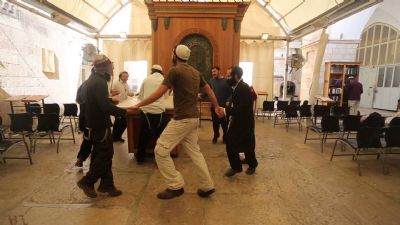

Israeli Muslim Zionist Activist Castigates UNESCO Over Hebron Vote Article


